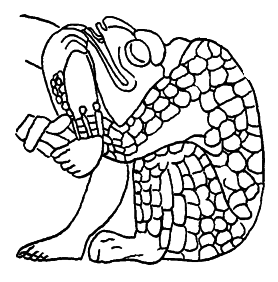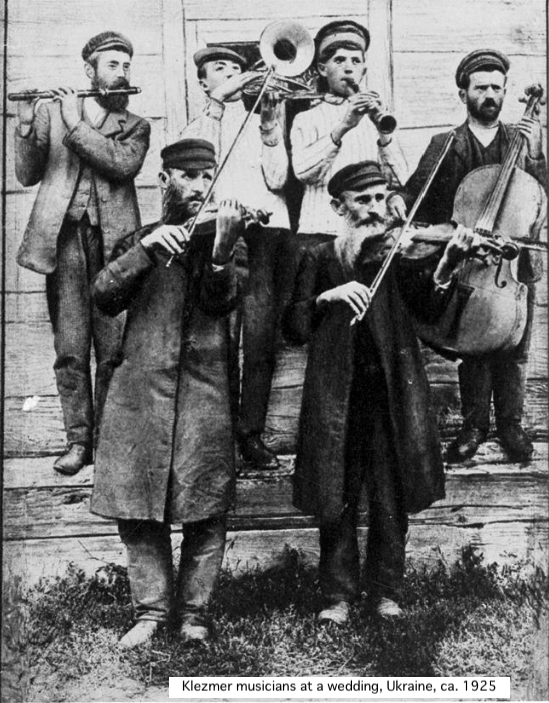Yiddish as Postvernacular language

ポストヴァナキュラーな言語としてのイディシュ語
Yiddish as Postvernacular language

池田光穂
最初のきっかけは、スピノザ『神学政治論(Der Teologish-politisher Traktat)』 が、最初にイディシュ語に翻訳されたのが、1923年Farlag M. Jankowitschにより、ニューヨークの書肆. Volständig übersetzt durch N. Perlman (Perelman). New Yorkだと言われているが、それよりも以前に、Farlag M. Jankovskyの名で書肆名なしに翻訳されている可能性があることを知ったことによる(→「スピノザの人生と作品」)。そんなところで、ジェームズ・クリフォード『リターンズ』 で紹介されていたジェフリー・シャンドラーの著作"Adventures in Yiddishland : postvernacular language & culture"である。ポストヴァナキュラーな言語としてのイディシュ語の (母語でもない完全に他者の言語でもない)第二のライフを論じているからである。ヴァナキュラー文化 (vernacular culture) とは、人々の生活に深く関連した文化や、その文化の根底にねざしている固有の伝統様式をさす。そ のためヴァナキュラーとは、しばしば「土着の」「人々の、ポピュラーな」というニュアンスをとって表現されるものである。したがって、「後の」という時間 性をともなった、ポストバナキュラーは、土着性の後にやってくる、地域や固有性を超えた、時空間的により広がりをもった一般性を獲得するプロセスと、その 帰結のことを意味する。
"Adventures in Yiddishland" examines the transformation of Yiddish in the six decades since the Holocaust, tracing its shift from the language of daily life for millions of Jews to what the author terms a postvernacular language of diverse and expanding symbolic value. With a thorough command of modern Yiddish culture as well as its centuries - old history, Jeffrey Shandler investigates the remarkable diversity of contemporary encounters with the language. His study traverses the broad spectrum of people who engage with Yiddish - from Hasidim to avant-garde performers, Jews as well as non-Jews, fluent speakers as well as those who know little or no Yiddish - in communities across the Americas, in Europe, Israel, and other outposts of "Yiddishland." - Nielsen BookData.
「『イディッシュランドの冒険』は、ホロコースト以
降の60年間におけるイディッシュ語の変容を検証し、数百万人のユダヤ人にとって日常生活の言語であったイディッシュ語が、著者の言うところの、多様で象
徴的な価値を拡大するポスト・ヴァナキュラー言語へと変遷していく過程をたどる。ジェフリー・シャンドラーは、現代のイディッシュ語文化だけでなく、その
数世紀にわたる歴史にも精通し、現代におけるイディッシュ語との出会いの驚くべき多様性を調査している。彼の研究は、ハシディムから前衛的なパフォーマー
まで、ユダヤ人から非ユダヤ人まで、イディッシュ語を流暢に話す人々からほとんど、あるいはまったく知らない人々まで、アメリカ大陸全域、ヨーロッパ、イ
スラエル、その他の「イディッシュランド」の前哨地におけるコミュニティで、イディッシュに関わる人々の幅広いスペクトルを横断する。」
Index
アシュケナージ・ユダヤ人の母語のイディシュ語 (ייִדיש, Jiddisch, Yiddish, )は、ナチスドイツからは東ヨーロッパの言語共同体の言語からは排除され(ホロコーストにより激減)、(戦後の)イスラエルではヘブライ語優遇のために抑 圧され、正統派コミュニティを除いて、日々のやりとりの言語としては消滅しつつあると言われている(アメリカ合衆国が現在では一番言語人口が多く300万 人以上と言われる)。しかしながら、ディアスポラを自覚するユダヤ文化の新しい創造(Shandler 2006:23)のなかで、第二のライフを得たようにも 思える。
シャンドラーは言う、ポストヴァナキューラ、母語が もた らす流暢な固有語のモデルとは異なる別の言語利用の可能性をもち、(ある意味で)解放的な概念である。
イディシュ文化が育んだ音楽ジャンルとしてクレズ マーがある。The Klezmaticsは1986年の小楽団で世界的なクレズマー流行をもたらした。また、ジャズ・サックス奏者で作曲家のジョン・ゾーンは、自己のユダヤ 文化のルーツに回帰しつつマサダグループを組織してユダヤ的伝統を取り込んでいる。"Given the historical associations of the project's name (see Masada), the Hebrew titles of the compositions, the melodic themes and musical structures reminiscent of klezmer music, and the Jewish imagery on the covers of the associated albums, Zorn was clearly exploring his Jewish roots with the Masada songbook and groups. He stated: "The idea with Masada is to produce a sort of radical Jewish music, a new Jewish music which is not the traditional one in a different arrangement, but music for the Jews of today. The idea is to put Ornette Coleman and the Jewish scales together."[https://en.wikipedia.org/wiki/Masada_(band)] .ジョン・ゾーン自身による説明:"The project for Masada was to create something positive in the Jewish tradition something that maybe takes the idea of Jewish music into the 21st century the way jazz developed from the teens and 1920s into the '40s, the '50s, the '60s and on ... My initial idea was to write a hundred tunes. And then I ended up writing over 200 for the first book and then performed it countless time for years.[https://en.wikipedia.org/wiki/John_Zorn]"
「プロジェクト名(マサダ参照)の歴史的な関連性、 楽曲のヘブライ語タイトル、クレズマー音楽を彷彿とさせるメロディ・テーマと音楽構造、関連アルバムのジャケットに描かれたユダヤのイメージを考えると、 ゾーンはマサダの曲集とグループによって、明らかに自身のユダヤ的ルーツを探求していた。彼はこう語っている: 「マサダでのアイデアは、一種の急進的なユダヤ音楽、伝統的なものを別のアレンジにしたものではない新しいユダヤ音楽、現代のユダヤ人のための音楽を作る ことだ。オーネット・コールマンとユダヤ音階を一緒にすることだ。」
「マサダのプロジェクトは、ユダヤの伝統の中で何か
ポジティブなものを創り出すことだった......ジャズが10代、1920年代から40年代、50年代、60年代と発展していったように、ユダヤ音楽の
アイデアを21世紀に持っていくような......。最初は100曲書くつもりだった。そして結局、最初の本のために200曲以上書き、何年もの間、数え
切れないほど演奏した。」[https://en.wikipedia.org/wiki/John_Zorn]
▲ ▲
▲
The Klezmatics (1986-
): NPR
Music Tiny Desk Concert ▲ Klezmer musicians at a wedding, Ukraine, ca.
1925 Photograph by Menakhem Kipnis (Menachem Kipnis,
1878-1942).(from YIVO ENCYCLOPEDIA)▲ John Zorn - Acoustic Masada Live
Full Concert
Menachem Kipnis, 1878-1942 はイディシュ・ソングのエスノグラファーでもあった(文献出典はこちら)。
リンク
文献
その他の情報
Copyleft, CC, Mitzub'ixi Quq Chi'j, 1996-2099